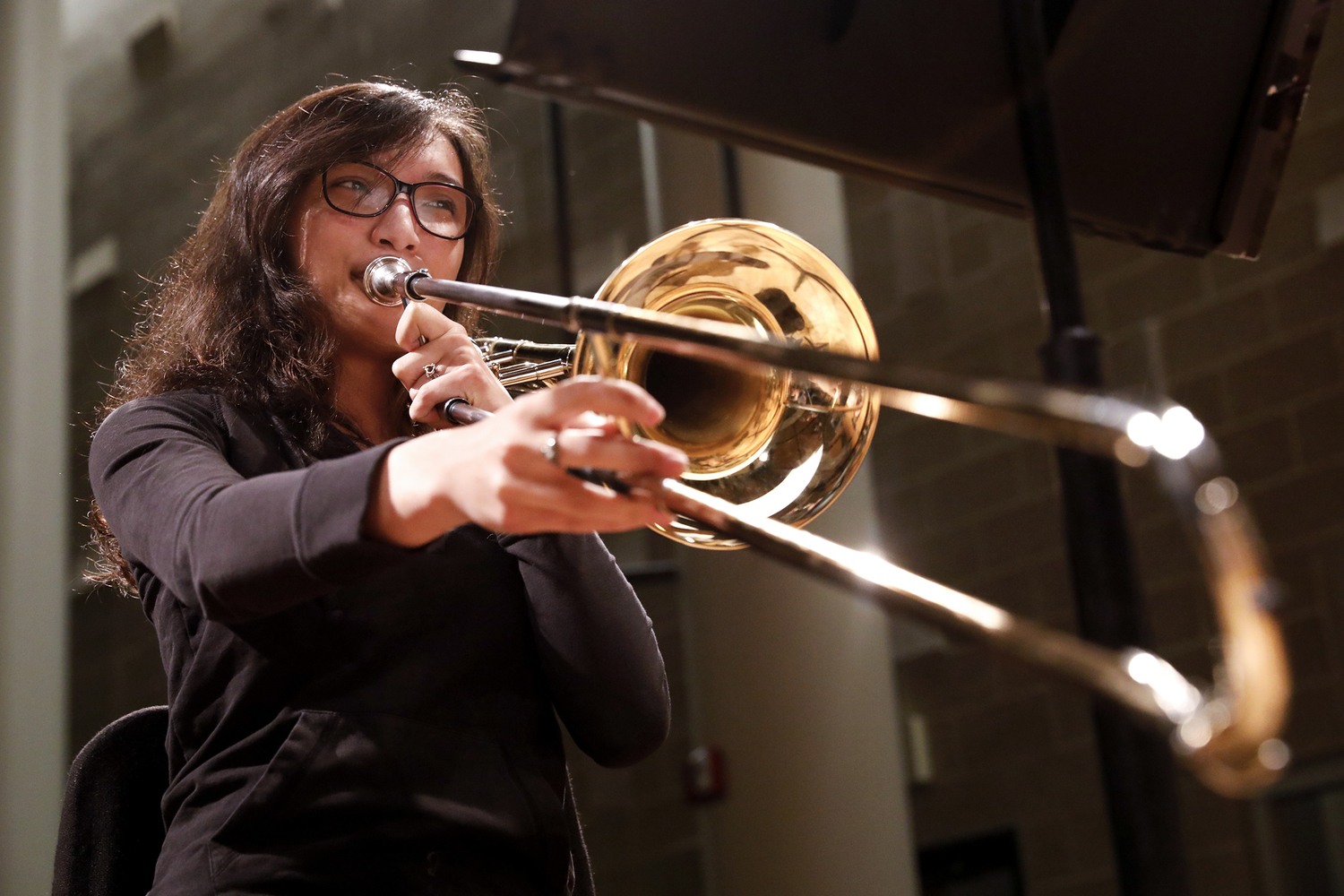6 ways to improve performance
From music to sports or anything else, here are top bets to help you better the practice … of practice

So, how DO you get to Carnegie Hall?
Contrary to what Allen Iverson may have thought, practice is essential to improving performance. Whether it’s basketball or Bach, no one goes from amateur to expert in anything overnight.
But how does practice help us? And what can we learn from the pros about how to do it better?
We sat down with MSU Denver experts to learn about what happens to us when we practice – and some helpful tactics to incorporate into your own routine.

Slower is faster
“Our minds understand actions before our bodies perform them, and that can be challenging – muscles need repetition to get better, but our brains get bored,” said David Kish, MSU Denver professor of music and author of “Practicing With Purpose: An Indispensable Resource to Increase Musical Proficiency” from Meredith Music Publications.
He pointed out how amateurs often don’t think logically when it comes to this disconnect, which leads to speeding through things and programming mistakes into kinesthetic (muscle) memory. The key to changing this thinking is to start slowly and only gradually increase speed with perfect repetition.
And those flubbed notes? Don’t just ignore them.
“When high-level performers make mistakes, they stop, address them and reinforce the corrected element over and over so they physiologically can’t make the mistake again,” Kish said. “It’s actually a faster way to learn, since you don’t have to go back and ‘undo’ the errors.”

Hocus focus
It’s not just muscle memory, though. Building comprehensive competence requires homing in on specific elements, said Shawn Worthy, professor of human services and MSU Denver NCAA faculty athletic representative.
“Elite athletes become very goal-oriented and focused,” he said. “Where an amateur might just dive into a round of golf, a professional will focus on one aspect of their performance – getting their swing on the right plane or making their weight transfer more efficient and smooth.”
This involves breaking complex elements down into component pieces – or “chunking” – until stringing them together becomes automatic. Repeated actions strengthen neural pathways in our brains related to individual tasks, eventually requiring minimal attention to perform a series of them after time, Worthy said.
“Imagine the first time you drove a stick shift or rode a bicycle – you probably felt exhausted after expending a lot of attentive energy at first, but eventually it becomes second nature,” added Travis Heath, MSU Denver associate professor of psychology. “Those are your synapses performing, reflecting a physiological change in your brain.”

Give me a break
Just as Kish noted that young musicians will force their way through a piece often to the point of frustration and exhaustion, elite performers will do something counterintuitive – nothing at all.
“Competitive and driven people often don’t know when to take a break,” Heath said. “Relaxation actually is really important to improving focus; if we don’t do that, we’re working against ourselves.”
Another key to avoiding burnout? Putting fun back into the fundamentals.
“You could shoot free throws all day, but that gets old,” Heath said. “If you put that in the context of a game where you’re competing and having a good time, you’re getting the reps without even realizing you’re practicing.”
Strategic variety may very well be the spice of performance. And when it comes to getting hyped by putting on your favorite tunes, it turns out there’s a real benefit to kicking out the jams.
“Adding music to the context of any repetitive task actually changes people’s physiology by increasing their arousal levels,” Heath said.

Think about it
Not all the work happens in the gym or practice room, however.
“One thing we often overlook is the value of mental practice,” Worthy said. “It’s something we do every day – have you ever gone into a meeting and planned out what you’ll say ahead of time? It’s the same thing in athletics.”
He noted that although it’s not as effective at directly producing results as physical practice, these visualization exercises yield better performance than none. Ongoing research also implicates metacognition as a key element in improving academic study.

It might just dawn on you
Early birds don’t just get the worm; they get better.
“Research shows we’re most creative in the early to late mornings,” Kish said. “From writers to musicians and artists, many start their day with breakfast – then getting straight to practicing.”
Another important tactic? Schedule those (early) rehearsals.
Building in a set time lessens the temptation to procrastinate, Kish said. And getting the work done early enough avoids the risk of becoming hopping mad from another day passing by.
“It’s easy to find excuses to not practice,” he said. “Like the quote says, ‘Eat a live frog every morning, and nothing worse will happen to you the rest of the day.’”
Put me in, coach
So that sounds great – but how can you make sure you’re doing it right?
That’s where coaching comes in. Worthy addressed how effective instruction helps set accurate targets to continually progress and improve performance, with a good coach possessing a navigator’s pinpoint accuracy.
“Think about if you’re traveling somewhere and have a specific address, instead of just a general neighborhood,” he said. “If you’re practicing but don’t understand the outcome, it’ll take you longer to get there and just won’t be as effective.”
And when it comes to good coaching, it’s all about knowing what makes people move.
“Motivation is idiosyncratic; everybody is driven by different factors, so good coaches really know what makes individuals tick,” Heath said. “Within this, it’s important to also praise positive progression – since only pointing out what’s wrong is a great way to kill the spirit, and that doesn’t help anyone get better.”







